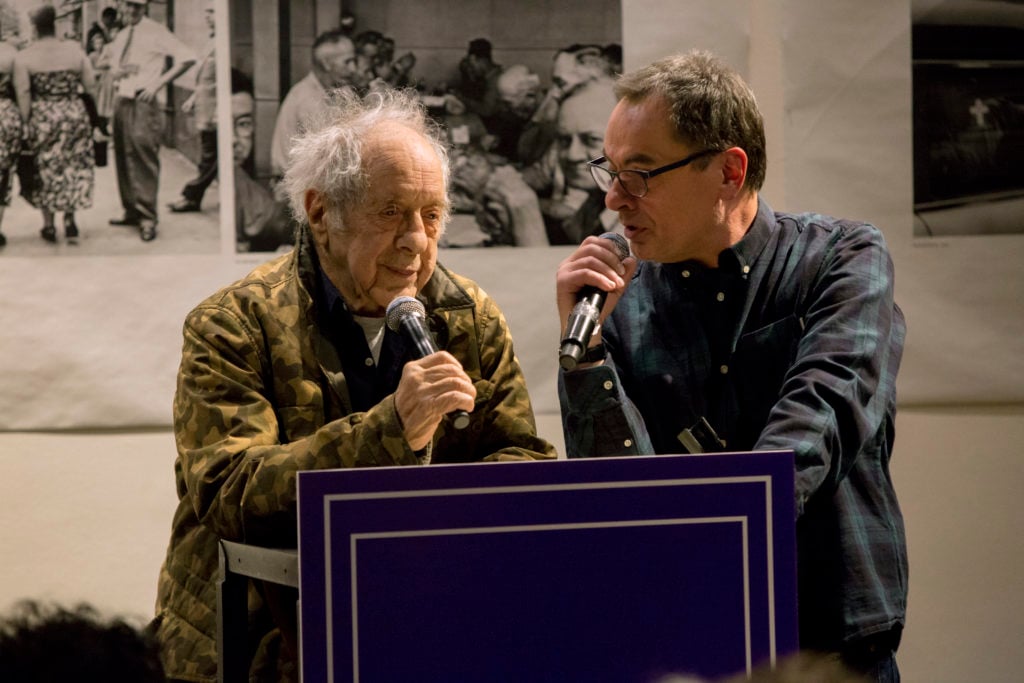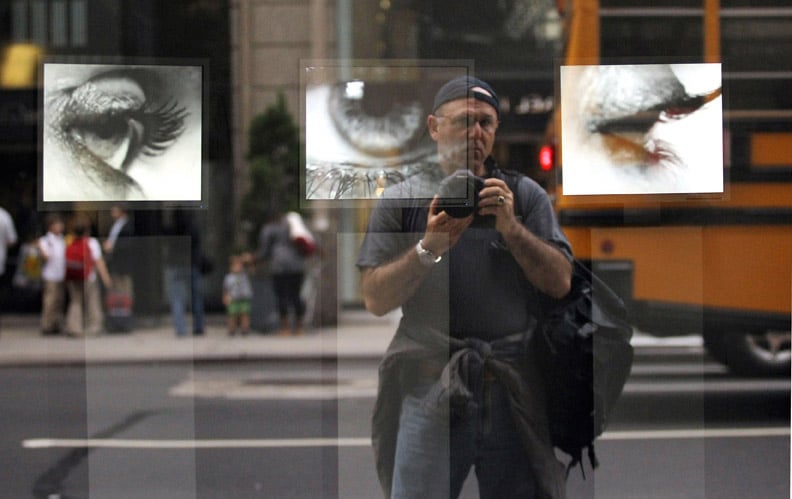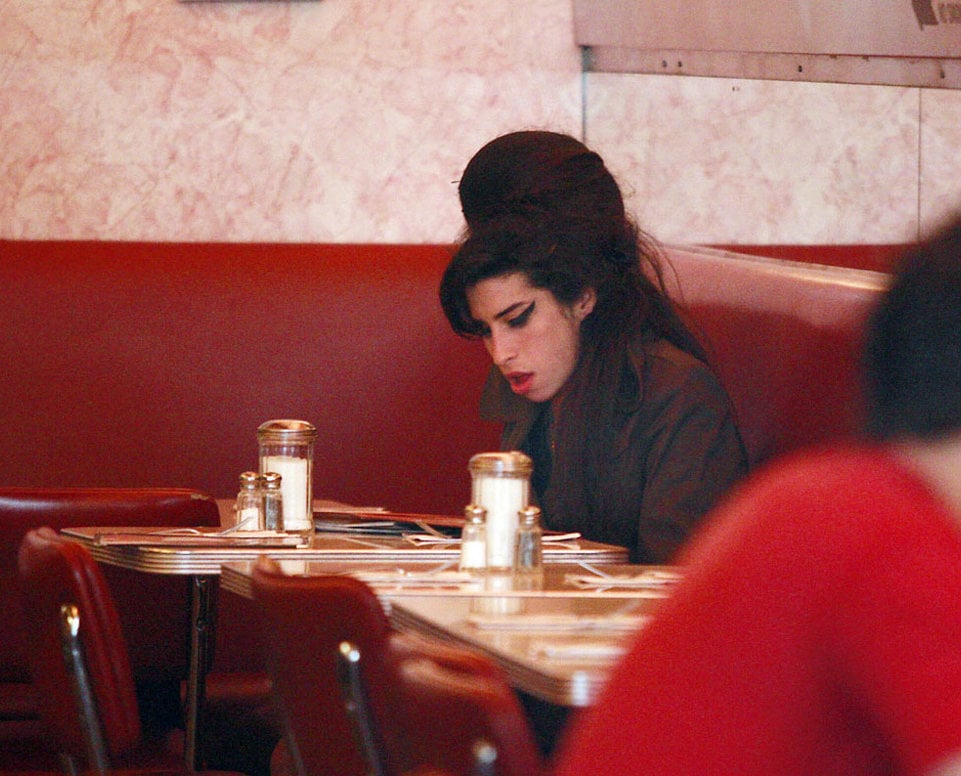Law & Politics
Judge Rules German Master Printer Gerhard Steidl Must Replace Photographer’s Lost Prints
Lawrence Schwartzwald says he was forced to sue Steidl to get his work back. Steidl says he didn't understand the process.

Lawrence Schwartzwald says he was forced to sue Steidl to get his work back. Steidl says he didn't understand the process.

Henri Neuendorf

Over the course of his 45-year career, publisher Gerhard Steidl has built a reputation as a printing guru. He has been sought out by the world’s best photographers for the unparalleled craftsmanship and attention to detail in his photography books.
Indeed, a recent profile in the New Yorker casts the enigmatic German as a kind of Teutonic über printer, driven by superhuman perfectionism and a desire to transform photography books into an art form so rich that the finished product eclipses the work of the photographs inside.
But for one photographer, the Germanic stereotype of supreme seriousness, efficiency, orderliness, and organization evoked by Steidl contradicts the reality of working with the reclusive publisher. Lawrence Schwartzwald, a New York-based photographer, claims that he was forced to sue Steidl for the loss of 49 signed prints (valued at $1,200 each). A court has now sided in his favor—but the publisher maintains that the photographer didn’t fully understand his unique process.

Lawrence Schwartzwald. Photo courtesy of Lawrence Schwartzwald.
In September 2014, Schwartzwald sent a selection of his prints to the publisher for a joint book project that was never completed. The book was intended to be a compilation of candid photographs of New Yorkers reading.
In June 2015, however, Schwartzwald was informed that Steidl did not have the capacity to fulfill the order and that his work would be returned. “I said, ‘No problem, just please return my portfolio prints,’” the photographer told artnet News. The prints, however, never arrived.
A year went by and after multiple requests, the photographer says he still didn’t receive his prints. “Basically, I’d gone on for a year being patient. I didn’t like the tone I was getting, and I couldn’t understand why it would take longer than 15 minutes to return this material,” he said. So Schwartzwald filed a lawsuit against the publisher in Germany in April 2016 to retrieve his portfolio.
After extensive litigation, a German court ultimately ruled in Schwartzwald’s favor in September.
“This case is very simple,” Schwartzwald’s lawyer Martin Schaefer said. “There’s no doubt that Mr Schwartzwald sent his photos to Steidl and that they arrived there. They took a long time to decide if they wanted to do something with the photos and finally said no. In response Lawrence asked for his material to be returned, which didn’t happen.”

Lawrence Schwartzwald had hoped to publish a book of candid photos of New Yorkers, such as Amy Winehouse, reading. Photo: courtesy of Lawrence Schwartzwald
Speaking to artnet News, Gerhard Steidl contradicted Schwartzwald’s version of events. He insisted that he never dropped the photographer’s book—in fact, he said, the project had made it through a very competitive selection process. (The court documents do not specify whether or not Steidl accepted the book or intended to publish it.)
The publisher said he receives around 2,000 submissions every year and shortlists around five every six months for publishing—that’s why each book can take multiple years to complete. Schwartzwald simply ran out of patience, the publisher said.
“Some people eventually say that they want their submission back, in which case we return them—and that was the case with Mr. Schwartzwald’s book,” Steidl told artnet News.
The publisher did, however, admit that the original work was misplaced. “It just couldn’t be found,” he said. “I didn’t sell it, auction it, or put it under my bed, it’s just not there anymore. Someone probably packed it incorrectly and it ended up somewhere else, but it’s not there anymore. It just happened, in my opinion I don’t deserve the death penalty.”
He added: “I’ve been a publisher for 50 years, and I’ve always said a book is ready when it is ready. I just take my time, and sometimes it takes very long…. We don’t just push a button, there has to be an idea and a vision for a book. I totally understand if people say it takes too long; but those people should go to a different publisher.”
In response to a request for comment, Steidl’s lawyer Urs Verweyen told artnet News: “It’s difficult to understand why a lawsuit was filed for the return of prints that could not be found. What exactly happened cannot be determined with 100 percent certainty, but it was most likely shredded according to the usual office procedures, as senders do not typically ask for the return of portfolio proofs. Seeing as we can’t find them we can only assume that this happened in this case too. Of course this is a very regrettable situation.”